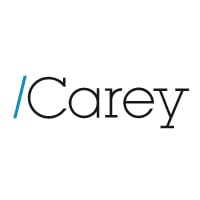

General counsel (fiscal) | Teck Resources LATAM



Nicolai Bakovic
General counsel (fiscal) | Teck Resources LATAM
How do you approach managing legal aspects during periods of instability or crises, and how does your legal strategy align with the broader business strategy to ensure the organisation’s resilience?
The challenges faced by companies as large and complex as Teck Resources inevitably involve a legal component. However, legal considerations are not always the primary factor in conflict resolution. They must be integrated with numerous other complexities, contributed by professionals with whom the in-house counsel regularly interacts. Therefore, beyond the legal dimension, one must consider social, reputational, labour, environmental, and other aspects, complicating decision-making and necessitating understanding of diverse perspectives on the issue. It is no longer sufficient to ask solely ‘Is it legal?’ Other critical factors must be factored in: what will stakeholders, workers and suppliers think if we make such a decision? Is this a solution that really solves the problem and is it sustainable in the long term? Will this affect the reputation of the company? Is this the ‘right’ decision and, if not, ‘what ought to be? (Ben Heineman describes this dilemma extensively in his book The Inside Counsel Revolution).
In this context, in-house counsel often face issues outside their typical expertise, such as emission standards, environmental concerns, industrial processes, geological challenges, community conflicts, and safety issues. In these areas, they must decode technical jargon, interpret it, and translate it into legal solutions that align with long-term strategic objectives. However, as there rarely is one-size-fits-all solution, in-house counsel must analyse multiple sub-optimal options, determining costs and benefits of each one.
There is a natural tendency for in-house counsel to outweigh the legal risk, when often the most relevant risks to organisations sit in other areas, such as reputational risk and its relationship with its stakeholders.
The in-house counsel must be able to ask and give his opinion on issues that are not necessarily legal. This, even at the risk of being told that he is out of his depth.
The in-house counsel must also have the courage to speak up and ask probing questions which, if not raised in time, may result in large losses to the company.
Among the skillset I deem crucial for the in-house counsel is creativity in pursuing innovative solutions, a skill not typically emphasised in traditional university legal education. When we talk about creativity in the legal profession, people usually stare at you, assuming it to be the domain of professions. I believe this is a bias, especially when decisions become increasingly complex.
The in-house counsel must be able to actively listen, raise warnings, when necessary, influence and lead the company towards what is the most desirable solution, be creative in the search of innovative solutions, understand what is best for the organisation in the long run.
General counsel | Teck Resources LATAM
General counsel – fiscal | Teck Resources Chile Limitada
General counsel | Corporación Nacional del Cobre de Chile (CODELCO)
Nicolai Bakovic Hudig, general counsel of Corporación Nacional del Cobre de Chile (Codelco) continues to impress following on from his inclusion in the inaugural GC Powerlist: Chile in 2017. He...
Legal vice president – general counsel | Corporación Nacional del Cobre de Chile (Codelco)
With annual revenues of around $11.5bn, Chile’s state owned copper mining company is the largest producer of copper in the world and a lynchpin of the country’s economy. The company’s...